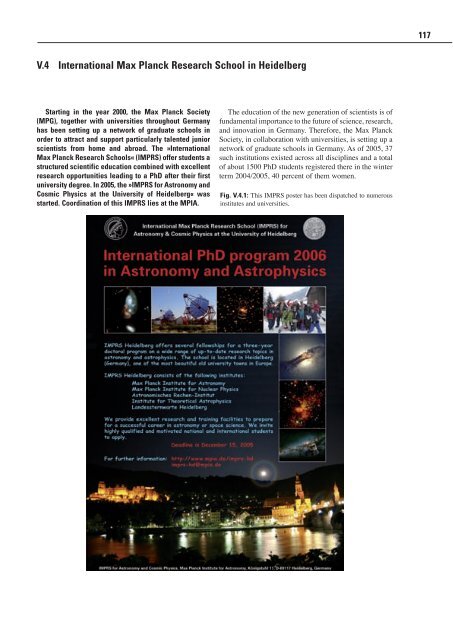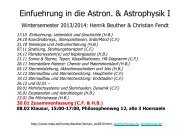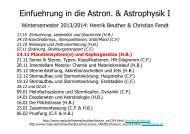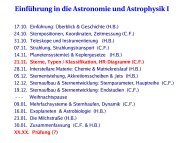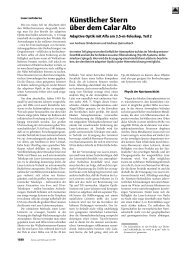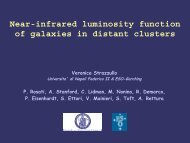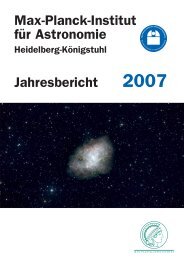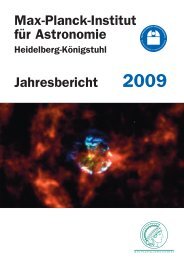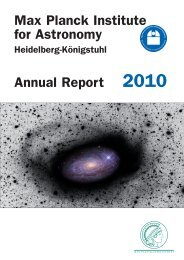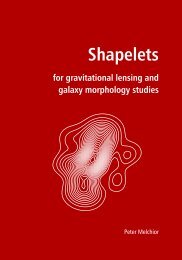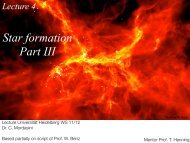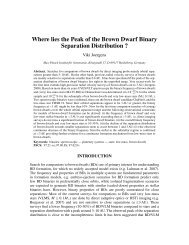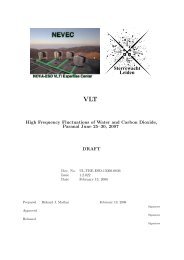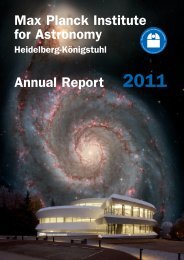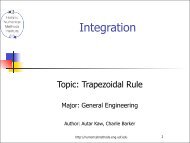Max Planck Institute for Astronomy - Annual Report 2005
Max Planck Institute for Astronomy - Annual Report 2005
Max Planck Institute for Astronomy - Annual Report 2005
Create successful ePaper yourself
Turn your PDF publications into a flip-book with our unique Google optimized e-Paper software.
V.4 International <strong>Max</strong> <strong>Planck</strong> Research School in Heidelberg<br />
Starting in the year 2000, the <strong>Max</strong> <strong>Planck</strong> Society<br />
(MPG), together with universities throughout Germany<br />
has been setting up a network of graduate schools in<br />
order to attract and support particularly talented junior<br />
scientists from home and abroad. The »International<br />
<strong>Max</strong> <strong>Planck</strong> Research Schools« (IMPRS) offer students a<br />
structured scientific education combined with excellent<br />
research opportunities leading to a PhD after their first<br />
university degree. In <strong>2005</strong>, the »IMPRS <strong>for</strong> <strong>Astronomy</strong> and<br />
Cosmic Physics at the University of Heidelberg« was<br />
started. Coordination of this IMPRS lies at the MPIA.<br />
The education of the new generation of scientists is of<br />
fundamental importance to the future of science, research,<br />
and innovation in Germany. There<strong>for</strong>e, the <strong>Max</strong> <strong>Planck</strong><br />
Society, in collaboration with universities, is setting up a<br />
network of graduate schools in Germany. As of <strong>2005</strong>, 37<br />
such institutions existed across all disciplines and a total<br />
of about 1500 PhD students registered there in the winter<br />
term 2004/<strong>2005</strong>, 40 percent of them women.<br />
Fig. V.4.1: This IMPRS poster has been dispatched to numerous<br />
institutes and universities.<br />
117


